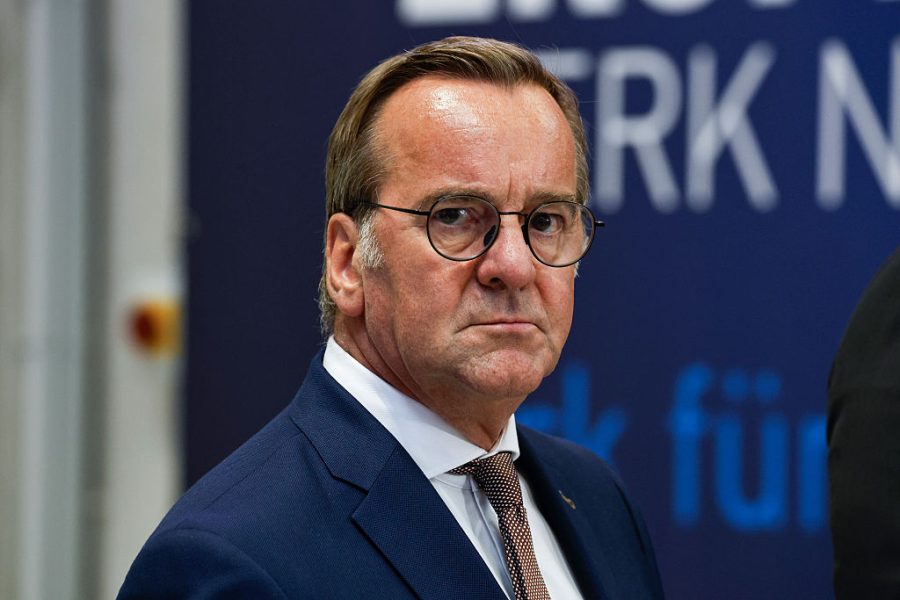It’s finally crunch time for Boris Pistorius’s plan to reintroduce military service in Germany. Following a delay of several months thanks to the country’s snap federal election campaign at the start of the year, the defence minister’s new ‘Modernisation of Military Service’ draft law is currently being debated in Berlin.
Under Pistorius’s proposals, all 18-year-olds will be asked to complete a questionnaire that will gauge their willingness and ability to carry out military service. For men, the quiz will be compulsory; for ‘other genders’ – including women – it will be optional. Those who declare themselves willing to serve will be invited for a formal assessment for recruitment into the armed forces, while anyone refusing to fill out the questionnaire could face a fine. Volunteers will then be expected to serve a minimum term of six months. Bar unexpected delays, the new law is expected to come into effect from 1 January, with medical exams for all potential recruits to be made compulsory by July 2027.
The idea of bringing back military service is proving very unpopular with Germany’s youth
Conscription was suspended during Angela Merkel’s stint as chancellor in 2011. But so far, it appears that, despite earlier resistance to the idea of bringing it back, Berlin’s politicians are in broad agreement that resurrecting military service in some form is now a good idea. What they can’t seem to agree on, however, is what to do if Pistorius’s new law doesn’t bring in enough volunteers to plug the gaps in Germany’s armed forces.
Pistorius has grand plans to grow the German army to 260,000 active troops and 200,000 reservists by 2035. But following years of financial cuts, along with a marked decline in employment conditions, the Bundeswehr has shrunk to a nearly all-time low of just over 182,000 active personnel. Many in Berlin – but in particular Chancellor Friedrich Merz’s conservative CDU party – want reassurance that, should the new military service law fail to bring in enough voluntary recruits, other means can be used to boost the army’s numbers.
A working group of MPs from the CDU and Pistorius’s social democratic SPD have suggested that any shortfall in volunteer numbers into the armed forces could be made up through a randomised lottery. Defending the idea, CDU parliamentary leader Jens Spahn said this would ensure any compulsory recruitment was fair. Few in Berlin – and beyond – appear to agree.
Blasting the proposal for a backup lottery, the head of the German army Carsten Breuer said it would be an ineffectual way of taking stock of the country’s manpower reserves in the event of an emergency. ‘From a military perspective,’ he said, ‘it is crucial that the entire year group is examined’. This could only be achieved through blanket conscription, he added.
Pistorius himself was also quick out of the gates to slam the idea of a lottery for plugging the gaps in the Bundeswehr, arguing that this would fail to bring in the best possible recruits. ‘One thing is clear,’ he said. ‘If voluntary service isn’t enough, there will be no way around mandatory conscription.’ Such a move, he added, would also act as a deterrent against an increasingly belligerent and provocative Russia. Hoping to make the Bundeswehr a more attractive employer and avoid having to resort to any kind of ‘plan B’ measure, Pistorius’s draft law also lays out plans to improve pay and working conditions with the aim of improving the retention issues the armed forces have been plagued with in recent years.
The dispute between Pistorius and members of the governing coalition to which he belongs has been ongoing ever since his draft law was introduced to the Bundestag in mid-October. A planned press conference between the CDU and SPD on the eve of the draft law’s first reading was cancelled with hours to go, reportedly after an agreement to include the backup lottery in the legislation fell through.
Several weeks of wrangling later, there are few signs Pistorius or his parliamentary opponents are any closer to finding a resolution. ‘There’s really only one proposal,’ senior CDU politician Norbert Rottgen told German media today defensively. ‘With the procedure we are proposing, everyone has the same chance, the same risk of being called upon. That is the equality we are upholding. Any better proposal is welcome.’
Conspicuously absent from the discussion over a lottery versus mandatory conscription is any suggestion of how the government would force young Germans into the army – and how to punish those who don’t comply. It is safe to say that passing any sort of law allowing jail time or fines for such rebellious youths would go down like a lead balloon with younger voters. This most likely goes some way to explaining the degree of resistance any suggestions of mandatory conscription have been met with.
Also unsurprisingly, the idea of bringing back military service of any kind is proving very unpopular with Germany’s youth – the demographic, of course, most directly affected by Pistorius’s new legislation. Enquiries into how to register as a conscientious objector are reportedly on the rise. Meanwhile, a study co-authored by the university of Hamburg found that only 14 per cent of 18- to 29-year-old men who had never done military service before were willing to put themselves forward for it. According to another survey from INSA, only 20 per cent of respondents aged between 18 and 29 were in favour of a lottery recruitment system. Interestingly, it found that on balance, more Germans preferred a return to mandatory conscription than any kind of lottery.
The Hamburg study, however, may hold some good news for Pistorius. According to their research, even extrapolating just the small percentage of young Germans who expressed a willingness to volunteer for military service, Pistorious would be able to meet his target for bolstering the Bundeswehr’s numbers ‘without coercion’.
With eight weeks left of the year, Pistorius is steadily running out of time to calm the disquiet around his draft law. He has held the honour of being Germany’s consistently most popular politician since he took up the post of defence minister nearly two years ago. But caught between a fractious Bundestag and an unimpressed public, will Pistorius’s military service law knock him off that top spot?








Comments